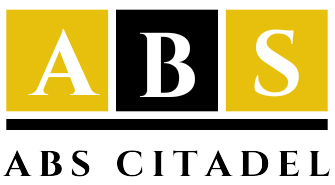
Mastering Onsite SEO: Tips and Tricks for Higher Rankings
Tips and Tricks for Higher Rankings
Search engine optimization (SEO) is a critical component of any successful online marketing strategy. While offsite SEO is essential for building backlinks and increasing visibility, mastering onsite SEO is equally important for higher rankings on search engine results pages (SERPs). In this article, we will explore some effective tips and tricks to optimize your website’s onsite SEO, improve its visibility, and drive organic traffic.
Tips and Tricks for Higher Rankings
- Keyword Research:
Keyword research forms the foundation of a successful onsite SEO strategy. Identify relevant, high-volume keywords using tools like Google Keyword Planner or SEMrush. Incorporate these keywords naturally within your website’s content, titles, headings, and meta tags. Long-tail keywords, which are more specific and have lower competition, can also help you rank higher for targeted searches.
- Optimized Meta Tags:
Meta tags, including the meta title and meta description, play a crucial role in onsite SEO. The meta title should include the primary keyword and be compelling enough to attract clicks from search engine users. The meta description, although it does not directly influence rankings, influences click-through rates. Craft an engaging meta description that includes relevant keywords and entices users to click on your website’s link.
- User-friendly URL Structure:
A well-structured URL not only helps search engines understand the content of your page but also enhances user experience. Ensure your URLs are concise, descriptive, and include target keywords. Avoid using numbers or arbitrary characters and use hyphens to separate words. A user-friendly URL structure makes it easier for users to remember and share your web pages.
- High-quality and Relevant Content:
Content is king when it comes to onsite SEO. Create high-quality, original, and informative content that addresses the needs and interests of your target audience. Incorporate relevant keywords naturally within the content, headings, and subheadings. Aim for longer content as studies have shown that pages with comprehensive and in-depth information tend to rank higher on SERPs.
- Internal Linking:
Internal linking improves website navigation, distributes authority within your website, and helps search engines crawl and index your pages more effectively. Include relevant internal links within your content to guide users to related pages or resources. Anchor text for internal links should be descriptive and include relevant keywords to further enhance their SEO value.
- Mobile-Friendly Design:
With the increasing use of mobile devices for browsing the internet, having a mobile-friendly website is crucial for onsite SEO. Ensure your website is responsive, providing an optimal experience across various screen sizes. Responsive design not only improves user experience but also satisfies Google’s mobile-first indexing requirements, leading to better rankings on mobile search results.
- Page Speed Optimization:
Page loading speed is a significant ranking factor in search engine algorithms. Optimize your website’s loading speed by compressing images, minifying CSS and JavaScript files, and leveraging browser caching. Google’s PageSpeed Insights and GTmetrix are tools that can help you assess and improve your website’s performance.
- Schema Markup:
Implementing schema markup, also known as structured data, can provide search engines with additional information about your website’s content. This helps search engines understand and display your content more accurately in SERPs. Schema markup can enhance the appearance of your listings with rich snippets, such as star ratings, reviews, or product prices, increasing click-through rates.
Mastering onsite SEO is crucial for higher rankings in search engine results and driving organic traffic to your website. By conducting keyword research, optimizing meta tags, using a user-friendly URL structure, creating high-quality content, implementing internal linking, adopting a mobile-friendly design, optimizing page speed, and leveraging schema markup, you can enhance the visibility and relevance of your website in search engine algorithms. Incorporate these tips and tricks into your SEO strategy to achieve higher rankings and increased organic traffic.


